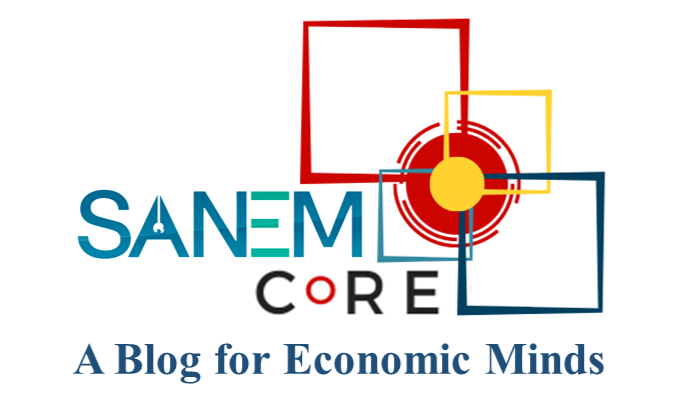With the vision to advance towards ‘Smart Bangladesh’ by embracing digital transformation and innovation, the startup scene in Bangladesh is experiencing a rise. Along with demonstrating remarkable resilience and growth despite global uncertainty, the economy’s new narrative driven by innovation is steadily taking its position. Bangladesh is progressively positioning itself as the next Asian Tiger Economy, buoyed by its burgeoning youth-driven consumer market, projected to rank among the world’s top nine by 2030.
A ‘startup’ is typically a nascent, highly scalable venture concentrating on tech-driven solutions to local or global challenges with demonstrated demand. They infuse the economic landscape with fresh ideas and innovative approaches, typically commencing with substantial costs and minimal revenue, necessitating funding from diverse sources. Currently, the industry boasts over 1200 active startups, with over 200 emerging annually. Notably, over the past half-decade, the sector has witnessed a remarkable sixfold growth, generating over 1.5 million employment opportunities (LightCastle Partners, 2023).
The primary source of the funding in Bangladesh is from corporate investors, venture capital firms and Startup Bangladesh – the flagship venture fund by the Government of Bangladesh. According to UNESCAP (2022), FinTech, E- commerce, Mobility, HealthTech, AgriTech, and EdTech startups dominate 80% of the investments. Projections foresee annual startup fund raises surpassing USD 2.5 billion by 2030. The growth is fueled by government backing, a robust local ecosystem, and high ambition to foster five unicorns by 2025.
Recent trends, such as the $72 million raised across 45 deals in 2023, signal a changing investment landscape amidst economic fluctuations. While analyzing the type of investors by deal count, venture capital (146) takes up the largest proportion followed by Angel Investors (123), Accelerator/Incubator (46), Corporates (44) etc. While analyzing the type of the funding volume by sector, financial services take up the largest share (64.12%). Notably, Bkash became the country’s first unicorn by being the first company in Bangladesh to reach a billion-dollar valuation. Following the financial services, logistics and mobility (10.70%) and Ecommerce and Retail (9.02%) take up the second and third place. This trend indicates the evolving maturity and resilience of these sectors within the ecosystem.
Acknowledging the burgeoning startup landscape, the Bangladeshi government has taken proactive measures to cultivate the ecosystem. Innitiatives like Innovation Design and Entrepreneurship Academy (iDEA) and Startup Bangladesh Limited offer vital support through training, mentorship, and financial aid to budding entrepreneurs. Furthermore, initiatives like Fund of Funds and the Startup National Policy aim to further enhance access to capital and streamline business processes.
Moreover, the Bangladesh Hi-Tech Park Authority (BHTPA) actively nurtures entrepreneurship by providing dedicated support and resources to startups across the nation’s hi-tech parks. Through initiatives such as outreach training programs, quarterly sessions with global venture capitalists, and events addressing policy and legal issues, BHTPA is nurturing a thriving startup ecosystem. Over 100 startups have already benefited from the in-house incubation facilities. Furthermore, the UNIBATOR program aims to encourage innovative thinking among graduating students by guiding them towards solving national challenges through their academic projects, bridging the gap between academia and practical application.
However, despite the promising context, significant obstacles persist as well. Bangladesh performs poorly in various trade and logistics related indices which indicates challenges relating to fundraising, talent acquisition and technology adoption. There also persist regulatory complexities such as unfriendly policies and taxation difficulties, infrastructure shortfalls etc. Moreover, a disorganized policy framework across ministries inhibits startups’ process of gaining approval. Limited intellectual property protection hinders growth of startups wanting to capitalize on their companies’ unique selling proposition as reflected in Global Innovation Index ranking.
There is a crucial need for startup-oriented framework with incentives to simplify operations, reduce costs, and facilitate access to debt financing. UNESCAP (2022) recommended some multi-stakeholder agenda in Bangladesh Startup Ecosystem Assessment Report (SEAR) to develop a national startup policy framework:
Pipeline Building: Active promotion and advocacy for startups and entrepreneurship along with more incubators and accelerators for budding entrepreneurs
Startup-Inclusive Investment Regime: Continuous evaluation of the investment framework’s flexibility for both local and international investors
Startup-Friendly Regulations: Adjusting investment rules, such as reducing lock-in periods for global investors, to enhance Bangladesh’s competitiveness in the global investment market
Growth Facilitation via Tax Incentives: Introducing tax options for incentivizing startup investments in order to stimulate investment flow from both local and foreign sources
Investment-Friendly Business Environment: Improving Bangladesh’s global image and simplifying administrative processes to improve compliance and facilitate new business establishment
Skills and Networking: Enhancing entrepreneurial skills through curriculum modifications and mentorship programs as well as mobilizing Non-Resident Bangladeshis (NRBs) as investors and mentors
Gender Lens Investing: Promoting gender lens investment through specialized programs and funds for women entrepreneurs along with encouraging gender inclusion in all stages of investing
Data for Progress Monitoring: Investing in platforms for quality data collection and standardization can assist stakeholders in market research and policy formulation.
In conclusion, Bangladesh’s startup ecosystem holds tremendous promise if fueled by proper government support, robust local investment and proper infrastructure. Through collaboration, innovation, and strategic initiatives, Bangladesh can harness its entrepreneurial spirit to realize its full potential in the global startup landscape.



RECENT COMMENTS